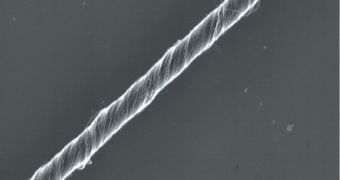The US Army plans to invest massively in developing improved technology for waging the wars of the future. Simultaneously, their recruitment approaches become more aggressive.
Thomas Killion, the Deputy Assistant Secretary of the Army for Research and Technology, believes that developing nanobots will be a great asset for the military. He thinks that the Army Experience Centers will aid with introducing the young soldiers recruited directly to the newly developed technology. As he says, “We're now seeing a generation of soldiers who are very comfortable with that technology. They don't have a second thought about the fact that they're using a robot to perform a task. They think that's just the way business is done. And that's how the future will be. They'll think of robots as collaborators or partners or members of their squad, and it won't be unusual for them anymore, like it would be for us, because we come from a prior generation. And that's important - that level of comfort and confidence is critical”.
In this respect, Killion has thoroughly focused his attention on improving the Army's Acquisitions, Logistics and Technology (ALT) department. He speaks of research related to monitoring sensors for brain's functionality and has already proven the positive behavior of exoskeletons made from carbon nanotubes that make army uniforms steel-tough. The director for research and laboratory management for the Army, John A. Parmentola, has high hopes from the Institute for Soldier Nanotechnologies which is expected to be able to develop one foot (0.3 meter)-long single carbon nanotubes and then spin them into a usable fabric.
The newly-adopted aggressive recruitment approach for this field of the military is aimed to provide the ranks with all sorts of required staff and especially targets unemployed people. As Killion stated in a public speech, “All those acquisition career fields require highly trained people; it's not just the PhD scientists - it's the business school graduates that understand basics economics and finance and can help us put together a good contract instrument”.

 14 DAY TRIAL //
14 DAY TRIAL //